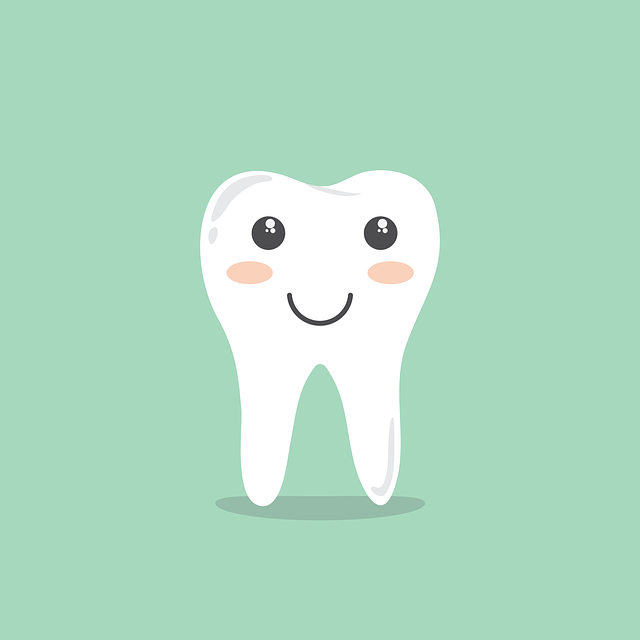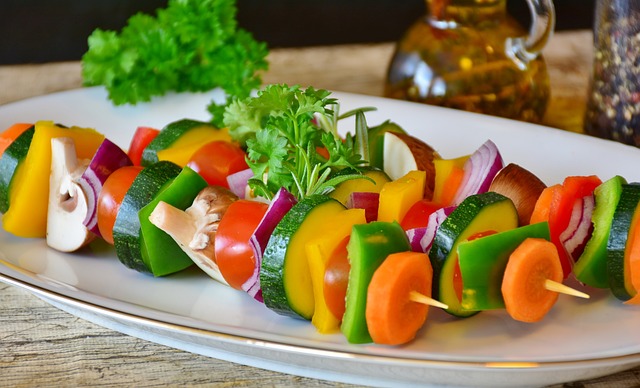Are you a food lover with veneers? Discover what you can eat without worries and how to maintain your dazzling smile.
1. A Guide to Eating with Veneers: Maintaining Your Smile’s Brilliance
Once you’ve invested in veneers to enhance your smile, it’s important to know how to take care of them while enjoying your favorite foods. By following these simple guidelines, you can ensure that your veneers stay brilliant and intact for years to come.
1. Be mindful of hard foods: While veneers are durable, it’s best to avoid biting into hard foods like ice, nuts, or hard candy. These foods can potentially damage or dislodge your veneers. Instead, opt for softer alternatives or cut hard foods into small, bite-sized pieces to lessen the risk.
- 2. Avoid sticky or chewy foods: Foods like caramel, taffy, or chewing gum can pose a threat to your veneers as they may become stuck and pull on them. If consumed, make sure to thoroughly clean your teeth afterward to prevent any residue from sticking to your veneers.
- 3. Be cautious with staining agents: While veneers are resistant to staining, it’s still advisable to minimize the consumption of beverages like coffee, tea, red wine, and dark sodas. If you do indulge, consider using a straw to minimize the contact between the liquid and your veneers. Additionally, regular brushing and flossing will further help maintain their brilliance.
2. Understanding Veneers: How They Impact Your Eating Habits
Veneers are thin shells made of porcelain or composite resin that are bonded to the front surface of your teeth. They are a popular cosmetic dental treatment that can greatly enhance the appearance of your smile. However, it’s important to understand how veneers can impact your eating habits.
1. Food restrictions: While veneers are designed to be strong and durable, it’s still recommended to be mindful of certain foods that can potentially damage them. Avoid biting or chewing on hard objects such as ice, pen caps, or hard candies as this can cause veneers to chip or crack. Additionally, be cautious while consuming sticky or chewy foods like caramels or taffy, as they can dislodge or loosen veneers.
2. Improved chewing ability: Veneers can help restore the shape and size of teeth, improving your bite and overall chewing ability. If you’ve been dealing with any discomfort or difficulty while eating due to misaligned or misshapen teeth, veneers can offer a solution. With their natural appearance and smooth surface, veneers allow for comfortable and efficient chewing, resulting in a more enjoyable dining experience.
3. Preparing Your Veneers: Discussing Food Options and Limitations
When it comes to preparing your veneers, it’s important to be aware of certain food options and limitations to ensure their longevity and appearance. While veneers are highly durable and stain-resistant, it is still recommended to make mindful choices to maintain their optimal condition.
Food options: Choosing the right foods can help protect your veneers and prevent any potential damage. Opt for a diet that includes:
- Gentle, non-sticky foods: Soft and non-sticky foods like steamed vegetables, lean meats, and cooked grains are ideal choices as they reduce the risk of veneer detachment or damage.
- Fibrous fruits and vegetables: Consuming fibrous fruits and vegetables not only benefits your overall oral health but also promotes healthy gum tissues, which contribute to the longevity of your veneers.
- Low-acid foods and beverages: Acidic foods and drinks can erode the dental enamel surrounding your veneers. Therefore, it’s best to avoid or limit intake of citrus fruits, sodas, and other acidic beverages.
Food limitations: To prevent any complications or damage to your veneers, it’s important to be cautious of certain food items. Consider avoiding or minimizing the intake of:
- Hard and crunchy foods: Chewing on hard candies, ice, or nuts can potentially lead to chipping or fracturing your veneers. It’s best to steer clear of these foods to safeguard the integrity of your dental restorations.
- Staining substances: Foods such as coffee, tea, red wine, and dark-colored sauces have the potential to discolor your veneers over time. While they won’t be as prone to staining as natural teeth, it’s still advisable to moderate your consumption to maintain their original shade.
- Highly pigmented foods: Intensely colored foods like berries and vibrant curries can also have an impact on the appearance of your veneers. While they don’t require complete avoidance, brushing your teeth or rinsing your mouth after consuming such foods can help minimize any potential staining.
4. Savory Delights: Enjoying a Variety of Foods with Veneers
When it comes to enjoying a variety of foods with veneers, it’s important to keep a few things in mind. While veneers are durable and can withstand normal eating habits, it’s best to avoid excessively hard or sticky foods that could potentially damage them. Here’s a helpful list of savory delights that you can indulge in without worrying about compromising the integrity of your veneers:
- Grilled vegetables – Whether it’s zucchini, bell peppers, or eggplant, grilling brings out the rich flavors of these veggies without posing a risk to your veneers.
- Tender cuts of meat – Opt for lean meats like chicken, fish, or tender cuts of beef that require minimal chewing. These choices will satiate your carnivorous cravings without causing any harm to your veneers.
- Soft cheeses – Delicate cheeses like mozzarella, brie, or goat cheese are excellent choices to pair with your favorite crackers or bread. They provide a creamy texture and delicious flavors that won’t put your veneers at risk.
Remember, maintaining good oral hygiene habits and regular dental check-ups is vital to ensure the longevity of your veneers. By making careful food choices and following proper oral care, you can continue to enjoy a wide range of savory delights without any concerns about your veneers.
5. The Do’s and Don’ts of Eating with Veneers: Expert Tips for a Healthy Smile
Eating with veneers can be a bit challenging, but with the right approach, you can maintain a healthy and beautiful smile. Here are some expert tips to help you navigate the do’s and don’ts of eating with veneers:
Do’s:
- Choose soft, non-sticky foods: Opt for foods that are gentle on your veneers, such as cooked vegetables, tender meats, and soft fruits. These are less likely to cause any damage or staining.
- Practice proper oral hygiene: Brush and floss your teeth regularly to prevent plaque buildup and maintain the longevity of your veneers. Consider using a soft-bristled toothbrush and non-abrasive toothpaste to avoid scratching the veneer surface.
- Be mindful while chewing: Take smaller bites and chew slowly to avoid putting excessive pressure on your veneers. This can help prevent any potential cracks or chips.
Don’ts:
- Avoid hard or crunchy foods: Refrain from biting into hard candies, popcorn kernels, ice, or chewing on pens or pencils. These hard substances can chip or break your veneers, leading to costly repairs or replacements.
- Steer clear of staining agents: Limit your consumption of coffee, tea, red wine, and other beverages or foods that can cause staining. If you do indulge, remember to rinse your mouth with water afterward to minimize potential discoloration.
- Don’t use your teeth as tools: Whether it’s tearing open packages, biting nails, or removing bottle caps, using your teeth for these tasks can jeopardize the integrity of your veneers. Instead, seek out appropriate tools to avoid any accidents.
6. Bite into Confidence: Choosing Foods that Won’t Damage Your Veneers
When it comes to maintaining your beautiful smile and protecting your veneers, making wise choices about the foods you consume is crucial. By opting for foods that are gentle on your veneers, you can bite into confidence without worrying about causing any damage. Here are some helpful tips to keep in mind:
- Choose soft, non-sticky foods: Soft foods like mashed potatoes, yogurt, and steamed vegetables are ideal for those with veneers. These foods are easy to chew and won’t put unnecessary pressure on your veneers, reducing the risk of cracks or chips.
- Avoid hard and crunchy foods: Foods like hard candies, ice, and popcorn kernels can be a veneer’s worst enemy. They can cause your veneers to crack or even dislodge. Instead, opt for alternatives like smoothies, gelatin desserts, and seedless fruits.
- Be cautious with staining foods and drinks: While veneers are resistant to staining, it’s still important to be mindful of foods and drinks that can cause discoloration over time. Coffee, tea, red wine, and acidic beverages like citrus juices should be consumed in moderation. If you do indulge, rinse your mouth with water afterwards to minimize potential stains.
By following these guidelines and making sensible food choices, you can enjoy your favorite meals while safeguarding your beautiful smile. Remember, maintaining good oral hygiene and regular dental check-ups are equally vital to ensuring the longevity of your veneers. Keep those pearly whites shining bright!
7. Discovering Veneer-Friendly Cuisines: Exploring Culinary Options
When it comes to maintaining your veneers, it’s important to explore cuisines that are gentle on your dental work. Thankfully, there are plenty of delicious options to choose from that won’t compromise your new smile. Here are some veneer-friendly cuisines to satisfy your taste buds:
1. Japanese Cuisine: Japanese cuisine is not only known for its exquisite flavors but also for being tooth-friendly. Savor dishes like sushi, sashimi, and miso soup, which are soft and don’t require excessive biting or chewing. Additionally, many traditional Japanese dishes are made using fresh ingredients like fish and seaweed, which are packed with nutrients beneficial for your dental health.
2. Mediterranean Cuisine: The Mediterranean diet is not only good for your overall health but also for your veneers. Indulge in a variety of dishes like hummus, falafel, and grilled vegetables, which are soft and easy to consume. Olive oil, a staple in Mediterranean cooking, is also beneficial for your oral health, as it is rich in antioxidants that can help reduce inflammation in your gums. With its emphasis on fresh ingredients like fruits, vegetables, and whole grains, Mediterranean cuisine is a flavorful and healthy choice for veneer wearers.
8. Beyond the Bite: The Importance of Proper Oral Hygiene with Veneers
Proper oral hygiene is crucial for maintaining the long-term health and beauty of your veneers. While veneers are incredibly durable and resistant to stains, they still require regular care and attention to ensure their longevity. Here are some essential tips to go beyond just a perfect smile and embrace a comprehensive oral hygiene routine with veneers:
- Brush gently but thoroughly: Use a soft-bristled toothbrush and a non-abrasive toothpaste to gently brush your veneers twice a day. This will remove plaque and bacteria without damaging the surface of your veneers.
- Floss with care: Incorporate flossing into your daily routine to clean the spaces between your veneers. However, be cautious not to use excessive force or snap the floss, as it may dislodge or damage the veneers.
- Avoid stain-causing substances: Although veneers are highly resistant to stains, it’s still best to minimize the consumption of deeply pigmented foods and beverages like coffee, tea, and red wine. If you do indulge, rinse your mouth with water afterwards to reduce the chances of staining.
Furthermore, regular visits to your dentist are vital in maintaining proper oral hygiene with veneers. Your dentist can perform professional cleanings and check-ups to ensure the integrity of your veneers and address any potential issues promptly. Remember, by following these guidelines and giving importance to your oral hygiene routine, you can enjoy the full benefits of your veneers for many years to come.
9. Defying Dietary Restrictions: Creative Solutions for Veneer-Wearers
When it comes to dietary restrictions, wearing veneers doesn’t have to hold you back. Whether you’ve recently gotten veneers or have been wearing them for a while, finding creative solutions to navigate your food choices can make a big difference in your overall satisfaction and enjoyment. Here are some tips and tricks to help you defy dietary restrictions and confidently indulge in a wide variety of foods:
1. Choose softer options: Opt for foods that are easy to chew and won’t place excessive pressure on your veneers. This includes steamed or sautéed vegetables, soft fruits like bananas or berries, and tender cuts of meat or fish. Incorporating these softer options into your meals will ensure a smoother eating experience and help prevent any potential damage to your veneers.
2. Avoid sticky or hard foods: Sticky or hard foods can pose a challenge when you’re wearing veneers. Stay away from things like caramel candies, nuts, and hard candies that can potentially dislodge or damage your veneers. Instead, satisfy your sweet tooth with soft desserts like puddings or mousses, and opt for nut butters rather than whole nuts for added flavor and nutrition.
10. Savor the Flavors: Recipes and Meal Ideas for Enjoying Food with Veneers
Caring for your veneers doesn’t mean you have to give up on enjoying delicious meals! With some simple tips and recipe ideas, you can savor the flavors without compromising your veneers. Here are some meal ideas and suggestions to help you make the most of your culinary experiences:
- Soft and Tender: Opt for softer foods that are still packed with flavor. Soups, stews, and casseroles can be a great option as they provide warmth and taste while being gentle on your veneers.
- Protein Power: Incorporate protein-rich foods into your diet to promote a balanced and nutritious meal. Tender cuts of meat, fish, or tofu can be marinated and cooked to perfection, ensuring a pleasing dining experience.
- Bountiful Bites: Explore the world of vegetables by roasting or steaming them to preserve their natural texture and taste. Broccoli, carrots, and zucchini can add color and variety to your plate.
- Savor the Sea: Seafood provides a delightful way to enjoy different flavors without exerting too much pressure on your veneers. Grilled salmon, poached shrimp, or delicately seasoned scallops can be a palate-pleasing addition to your meals.
Remember, practicing good oral hygiene, such as regular brushing and flossing, is crucial in maintaining the longevity of your veneers. Additionally, avoiding hard or crunchy foods and refraining from biting into tough items can minimize the risk of damaging your veneers. So go ahead and explore the culinary world, savoring each delicious bite with confidence and enjoyment!
In conclusion, having veneers doesn’t mean you have to restrict your diet. With a few precautions and a mindful approach, you can continue enjoying a wide variety of foods. Remember to be gentle while biting, avoid excessively hard or sticky foods, and maintain good oral hygiene. Your new smile shouldn’t stand in the way of your culinary adventures!






